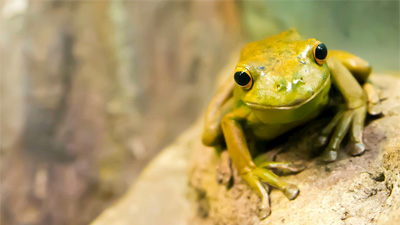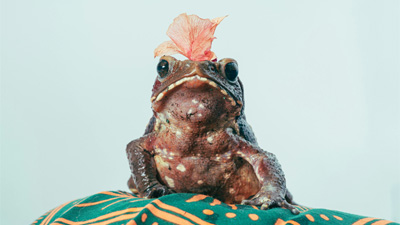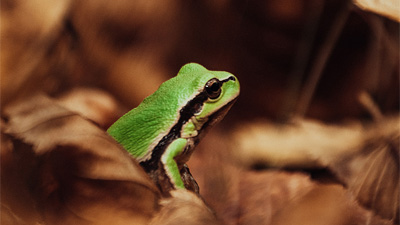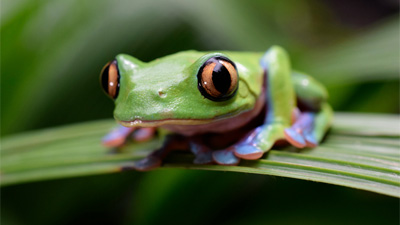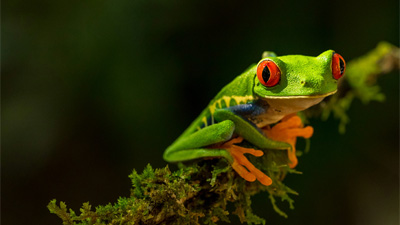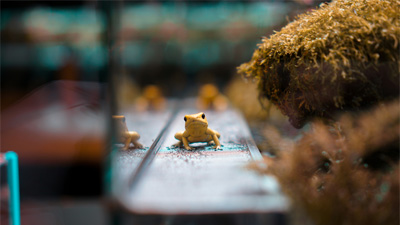Do Frogs Make Good Pets? Yes!
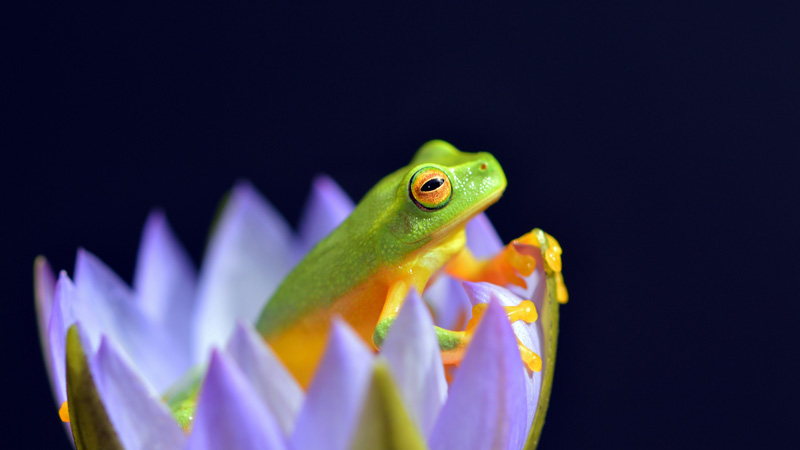
Photo by David Clode on Unsplash
When it comes to choosing a pet, frogs may not be the first creature that comes to mind for many people. Cats, dogs, birds, and even fish often take center stage in the realm of pet ownership. However, frogs have been gaining popularity as pets in recent years, thanks to their unique characteristics, low maintenance requirements, and fascinating behaviors. In this article, we will explore why frogs make good pets and what you need to know before bringing one into your home.
Let's take a closer look at some of the key factors that contribute to their suitability as pets:
1. Low Maintenance
One of the key reasons why frogs make good pets is their low maintenance requirements. Unlike other traditional pets like cats and dogs, frogs do not require daily walks, grooming, or constant attention. They are independent creatures that spend most of their time in their habitat, making them suitable options for busy individuals or those with limited time.
Frogs have simple care needs, including regular feeding, monitoring of their habitat, and occasional cleaning. Depending on the species, their diet mainly consists of live insects like crickets, mealworms, and flies, which are relatively easy to obtain. They do not require bathing or extensive grooming. With a well-designed habitat that meets its specific environmental requirements, your frog can thrive with minimal effort on your part.
2. Quiet Companions
For individuals who enjoy a peaceful and quiet environment, frogs make ideal companions. Unlike dogs that may bark or cats that may meow, frogs do not vocalize in the same way. While some species of frogs may make occasional sounds, their vocalizations are generally soft and not disruptive to the household. This makes them suitable pets for individuals living in apartments or shared living spaces where noise levels need to be kept to a minimum.
Frogs also have a calming presence, as they gracefully move about their enclosure, exploring their surroundings or lounging in a cozy spot. Watching their unique behaviors, such as climbing, hunting for prey, or swimming, can provide a sense of tranquility and relaxation. The peaceful nature of frogs can be especially beneficial for individuals seeking a soothing and stress-free pet-owning experience.
3. Fascinating Behaviors
Observing the behavior of pet frogs can be a fascinating and educational experience. From their unique body movements to their interaction with their environment, there is much to learn and appreciate. Frogs have a reputation for their acrobatics, effortlessly jumping and climbing around their enclosure. Some species even have the ability to change their skin color to blend in with their surroundings.
Frogs are also skilled hunters. Watching them stalk and capture prey can be a captivating sight. Many frog species are carnivorous and thrive on a diet of live insects. Providing them with a variety of insect prey stimulates their natural hunting instincts and allows for engaging observation.
In addition to their day-to-day behaviors, frogs also exhibit interesting reproductive behavior. Some species engage in elaborate mating rituals, including vocalizations, territorial displays, and courtship dances. Witnessing such behaviors can provide a unique insight into the natural world and the fascinating lives of these amphibians.
4. Variety of Species
Another advantage of keeping frogs as pets is the wide variety of species available. There are numerous species of frogs suitable for captivity, each with its own unique characteristics and requirements. Some popular choices include the African Dwarf Frog, the Dart Frog, the White's Tree Frog, and the Pacman Frog.
Each species has its own care needs, habitat preferences, and behavior patterns, allowing owners to choose a frog that matches their interests and preferences. Whether you are drawn to small aquatic frogs that spend their time swimming or terrestrial species that prefer climbing and burrowing, there is a frog species out there for everyone.
5. Educational Value
Keeping frogs as pets can be an enriching and educational experience, especially for children. Caring for a living creature and learning about its needs, behavior, and natural habitats can foster a sense of responsibility and curiosity. It provides an opportunity for hands-on learning about the natural world and can serve as a springboard for further exploration of amphibians and their ecological importance.
For young children, observing the life cycle of frogs, from tadpole to adult, can be an exciting and educational experience. It teaches them about the concepts of growth and development and allows them to witness firsthand the wonders of nature. Additionally, caring for a pet frog can help children develop empathy and a sense of compassion toward animals.
Important Considerations
While frogs make good pets for many reasons, there are some important considerations to keep in mind before bringing one into your home:
Space: Frogs require an appropriate habitat that meets their specific needs. The enclosure should be well-ventilated, secure, and provide adequate space for movement and exploration.
Environmental Requirements: Different frog species have specific environmental requirements regarding temperature, humidity, lighting, and access to water. It is crucial to research these needs and provide the appropriate conditions to ensure the well-being of your pet frog.
Diet: Frogs are carnivorous and require a diet consisting mainly of live insects. It is important to ensure a reliable supply of appropriate prey items to meet their nutritional needs.
Healthcare: While frogs are generally hardy animals, they can still be susceptible to certain health issues. Regular veterinary check-ups and appropriate care are necessary to maintain the health and well-being of your pet frog.
Legal Considerations: It is essential to research and comply with any regulations or restrictions regarding the ownership of frogs in your area. Some frog species may be protected or require permits for ownership.
In conclusion, frogs make good pets for individuals seeking low-maintenance, quiet, and fascinating companions. Their peaceful nature, interesting behaviors, and educational value make them suitable pets for individuals of all ages. However, it is important to consider their specific care requirements and ensure that you can provide a suitable habitat and proper care before bringing a frog into your home. With a little research and preparation, owning a pet frog can be a rewarding experience that brings joy and fascination into your life.
